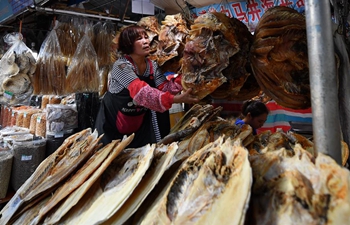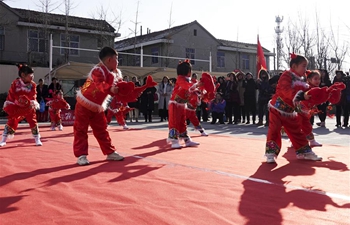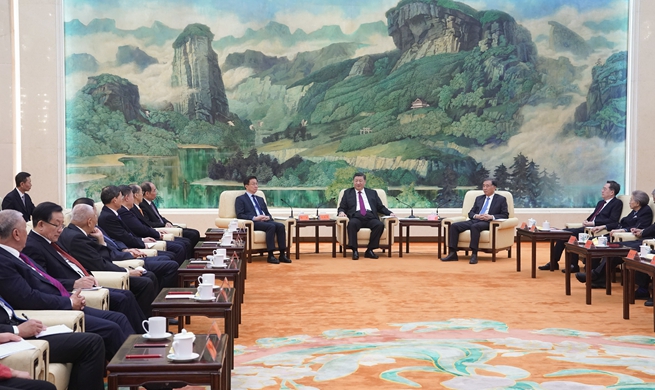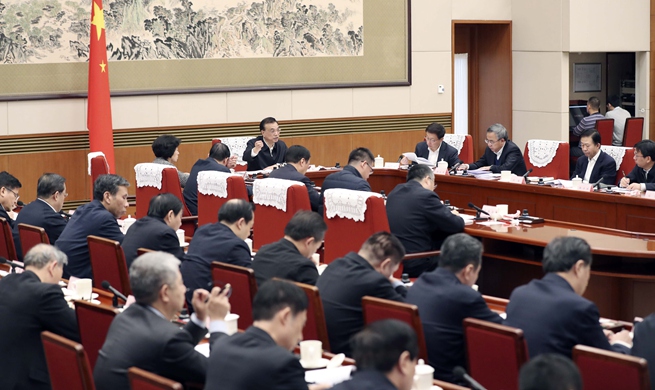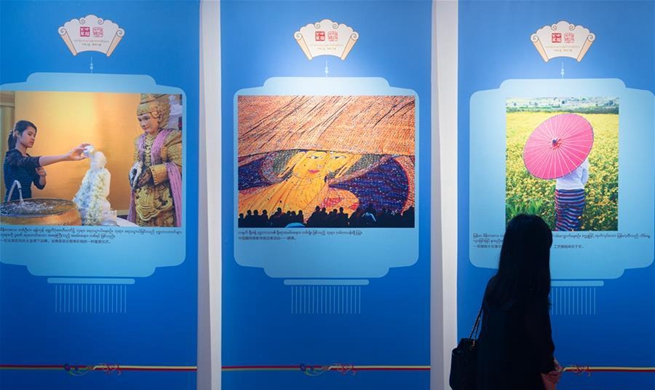SEOUL, Jan. 16 (Xinhua) -- The approval ratings among South Korean political parties showed a mixed picture ahead of the April parliamentary election as minor parties were set to be splintered and combined, a weekly poll showed Thursday.
According to the Realmeter survey, support for the ruling Democratic Party declined 4.1 percentage points over the week to 37.0 percent this week.
The main conservative opposition Liberty Korea Party garnered 32.4 percent of support this week, up 1.1 percentage points from a week earlier.
The minor right-wing New Conservative Party, a splinter group of the minor conservative Bareun Future Party which was established earlier this month, ranked third in its first approval rating survey with a 5.3 percent support.
Support for the minor progressive Justice Party shed 0.7 percentage points over the week to 4.8 percent this week, and the Bareun Future Party's support score slipped 1.0 percentage point to 3.7 percent.
Support for the center-left Party for Democracy and Peace rose 0.3 percentage points to 2.2 percent, while the far-right Our Republic Party's approval score remained at 1.5 percent.
The Minjung Party, created in 2017 and seen as far-leftists, was first included in the weekly survey, winning a support score of 1.5 percent.
The Alternative New Party, a splinter group of the Party for Democracy and Peace, gained 1.1 percent of support in its first approval rating poll by the pollster.
Ahead of the April general elections, the country's political parties were set to be splintered and combined.
Expectations ran high for minor parties to get more parliamentary seats in the National Assembly amid the revised election law, called a mixed-member proportional representation.
Under the amended law, voters cast two votes that include one for a lawmaker in their single-seat constituency and the other for a political party.
With the vote for a political party, minor parties were expected to win more parliamentary seats than before.
The poll results were based on a survey of 1,506 voters conducted from Monday to Wednesday. It had plus and minus 2.5 percentage points in margin of error with a 95 percent confidence level.

